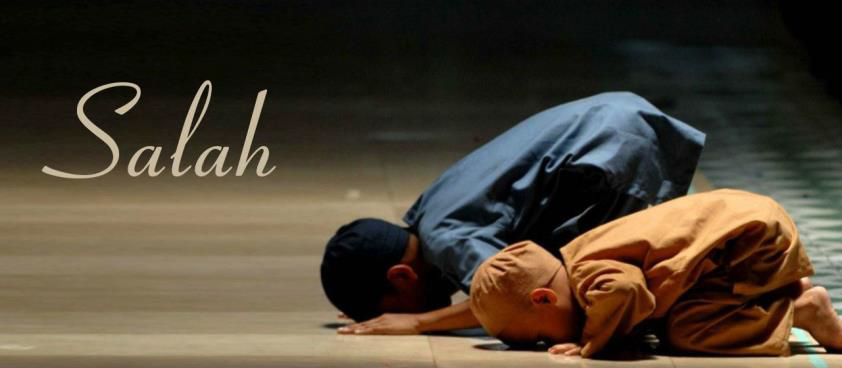
In the sacrosanct precincts of spiritual discourse, prayer emerges not merely as a conduit of divine communion but as a holistic act imbued with both earthly and celestial benedictions. Islam, with its rich tapestry of rituals and dogmas, positions prayer (Salah) at the quintessence of its spiritual praxis, unravelling the layers to reveal its multifarious benefits that touches the physical realms, transcending to the metaphysical, and extending its embrace to the emotional and mental fortitude of the individual.
The Theological Imperatives and Universal Synergy of Prayer
The Islamic narrative establishes that prayer is not ordained by the Divine as a testament to His need for homage, but rather, it is prescribed for the benefit of humanity. This resplendent act of worship, structured meticulously through its canonical times, movements, and supplications, is a testament to a believer’s submission and consciousness of the Divine presence. This framework of Salah mirrors the broader religious tradition across the globe where prayer, regardless of its form or semantics, serves as a bridge between the human and the Divine, facilitating an exchange that transcends the tangible.
Physical Benefits of Salat in Islam
Salat, the Islamic practice of ritual prayer performed five times a day, encompasses significant physical benefits alongside its spiritual importance. This act of worship involves a series of movements: standing, bowing, prostrating, and sitting, which contribute to the physical well-being of practitioners, making it a holistic act of worship that nurtures both body and soul. Here are some highlighted benefits:
– Muscle Strengthening and Flexibility: The repetitive physical movements involved in Salat help strengthen the muscles of the abdomen, legs, and back. Regular performance can enhance flexibility, particularly in the spine and limb joints, due to the stretching motions required in each cycle of the prayer.
– Posture and Balance Improvement: The practice of Salat requires precise posture at various stages, aiding in the improvement of posture and balance over time. This can reduce back pain and improve overall body alignment.
– Stress Reduction and Mental Calm: The concentration and mindfulness required during Salat can have a calming effect, reducing stress levels. The rhythmic motions and focused breathing may also contribute to lowered anxiety and enhanced mental clarity.
– Cardiovascular Health: Engaging in Salat regularly can have a moderate impact on cardiovascular health. The physical activity involved, though not strenuous, contributes to heart health by maintaining a level of physical activity, which is especially beneficial for individuals leading a sedentary lifestyle.
– Improved Circulation and Digestion: The movements in Salat can help boost circulation and aid in digestion. Positions such as prostration increase blood flow to the brain, while the sequence of movements can facilitate smoother digestion by encouraging the movement of intestinal contents.
Transcending the Physical: The Metaphysical Merits of Prayer
In the realm of the metaphysical, prayer in Islam acts as a conduit for tranquil communication with the Creator, fostering a sense of peace, contentment, and spiritual awareness. It is this spiritual alignment and tranquility that marks the essence of prayer’s metaphysical benefits—anchoring the soul in times of tumult and uncertainty. Similar narratives unfold in various religious traditions across the world, where prayer is seen as a vehicle for attaining spiritual enlightenment, transcending the physical to touch the divine essence.
The Empirical Echo: Emotional and Mental Well-being through Prayer
Scientific exploration into the act of prayer has unveiled a fascinating tapestry of benefits that underscore its significance beyond spiritual edification. Emotionally, prayer offers a sanctuary of solace, a private interlude where human vulnerabilities are laid bare, and comfort is sought in divine assurance. This emotional unburdening, akin to therapeutic discourse, significantly enhances mental well-being, reducing stress, and fostering a state of psychological resilience. The rhythmic recitations, the deep meditative postures, and the profound silence of Salah can induce a state of mental tranquility, similar to mindfulness practices in psychological therapies.
Prayer: A Divine Prescription for Human Flourishment
Thus, the act of prayer, as promulgated in Islam and mirrored in various guises across religious spheres, is fundamentally a divine prescription for the holistic development of the human being. It is an act not of divine necessity but of human exigency—a means through which the abstract and the finite converge, fostering a state of existential well-being. The benefits, stretching across the physical, metaphysical, emotional, and mental domains, underscore prayer’s inherent value as a universal, transcendent practice, nurturing the human spirit in its quest for divine connection and inner peace.


